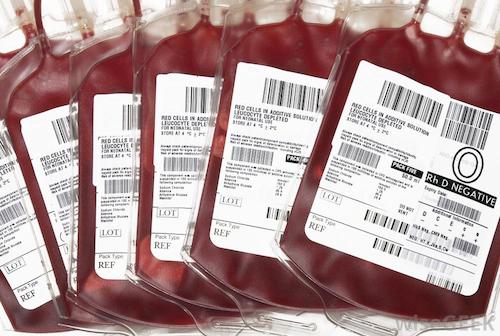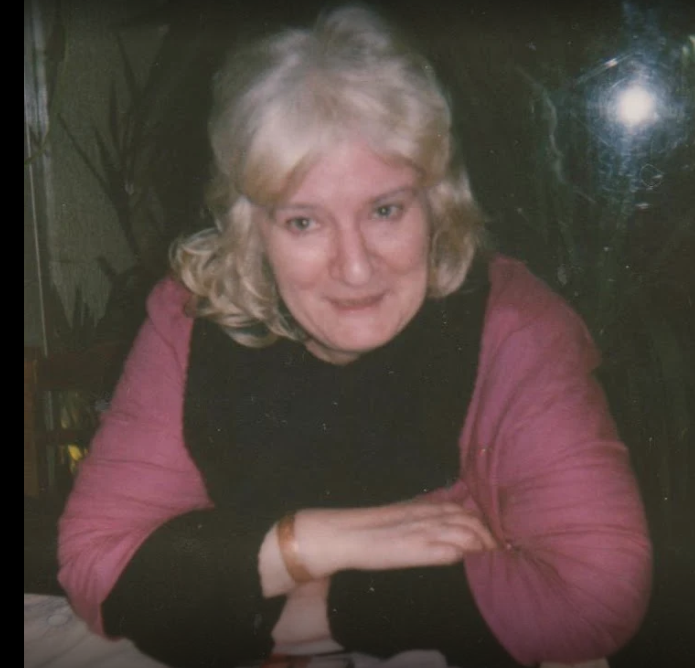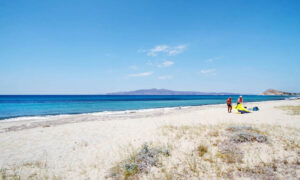(Editor’s note: As Brexit looms and expats consider staying in the European Union, we think it’s instructive to look in depth at real-life issues such as healthcare.)
Late last year, I was admitted to a private hospital in Athens for an operation on my shoulder. I was a newbie, having never had an operation before.
I am a little superstitious – not about black cats and so on – but about signs and omens. The weather had been good for weeks, but on the 28th it was seasonal – cold, windy and raining. The wind lashed the branches of the European birch trees outside the apartment building. The drive to the hospital could have been better.
Before the operation
 Just a week before the operation, my doctor informed me that I would need blood if I were to have it. If I didn’t produce at least a litre of blood, there could not be an operation. This is a legal requirement.
Just a week before the operation, my doctor informed me that I would need blood if I were to have it. If I didn’t produce at least a litre of blood, there could not be an operation. This is a legal requirement.
Luckily friends rallied around and produced three litres a few days before I was due to be operated on. The blood didn’t have to be the same group as mine; any blood was acceptable to keep up the system’s blood stocks.
On arrival at the hospital I was taken to the admissions desk and signed several forms with my left hand. The more forms I signed, the more recognizable my signature became. I was then left to my own devices while my Greek friend went to complete more paperwork on my behalf – no one batted the proverbial eyelid at a male signing forms for a female, and the debit card people clearly didn’t have any qualms about accepting my extremely unusual, if not unrecognizable, signature.
Outside the operating theater
While I was waiting for something to happen, I felt something fall onto my bare arm. It was a medium-sized, golden-brown spider. Luckily, I don’t mind spiders, so I simply flicked it away. I might have panicked, if I had not just recently read the story of the Christmas Spider. I took it as a lucky sign.
My surgeon arrived with his anaesthetist and another doctor, and we sat chatting in the corridor. Finally, I was taken to a small room where I was anaesthetised. My doctor promised that he would be the first person I’d see when I regained consciousness. We chatted for a while until the anaesthetic took its toll. The next thing I remember was his face. There was no count down; one second I was conversing and the next I wasn’t.
My long-suffering Greek friend had sat for 5 hours, waiting for the operation to be over. Before cutting me, the doctor wasn’t sure how long the operation would take. The simple procedure could have been over in just under two hours, but my friend waited for me for five hours. I had been pleased to see my doctor’s face but was even more pleased to see my friend.
He and my surgeon explained that the operation had taken longer than expected as the area operated on had to be cleared of osteoporosis and arthritis. My early birthday present was a new shoulder courtesy arthroplasty surgery.
I guess I have a partially bionic shoulder. As it’s made from titanium and plastic I wonder if I can ever again go through airport scanners without setting them off. Having considered that question, I have come to the conclusion that as I was routinely frisked by customs officials, it won’t matter.
In the ward
I was put in a small ward with two other women. This was a benefit of being in a private hospital and paying for the operation and hospital ‘hospitality’. My doctor materialised with my friend, and assured me that the operation had been a success. He said that I would probably only be kept in for a few days. Then I was left alone and told they would come back at some unspecified time later.
I was attached to an array of drips and a supply of oxygen. Whenever I almost dozed, a nurse would appear to check the levels of the drips. I found it almost impossible to sleep.
I was lucky that the hospital had all the necessary medication and so on, as state hospitals are reportedly in a state of crisis.
I drifted around in my thoughts only disturbed by nurses every four hours or so.
Over the next few says I felt that I had much in common with a pin cushion. On the day I was to be discharged the nurses were finding it difficult to find an appropriate vein in my left arm. My right arm was out of bounds.
In fact this became a problem on the morning of my last day. The nurse sent for an anaesthetist to insert the spikes which would pump analgesics into me, because she was only allowed to insert them into arms. I ended up with two of them very close together. I complained about this on two separate occasions that morning.
Both the nurses who attended me and the anaesthetist told me that they were perfectly fine. However, when I eventually got out of bed, one of them lost its top and there was a fountain of blood spurting out of the vein. The flow was staunched, and I was put back into bed feeling faint.
Going home
I can’t say that I was unhappy about going home. The women in the other beds groaned most of the time – literally, if not too loudly, and they cried.
I needed wheelchair assistance, as my right leg is riddled with osteoporosis and arthritis. The person pushing the chair had to be informed of this fact, as he had thought that I could walk the short distance to the chair unassisted. Once again, my friend explained in Greek. Once this was done things were easier.
Somehow my friend and the wheelchair attendant got me out of the ward. I’m sure the other women were glad to be rid of me and my complaints. I think it would be fair to say that there was no love lost on either side.
My doctor caught up with me in the reception area to say au revoir as we would be meeting again shortly. He gave me very good after-care. All the necessary forms were duly completed and signed, and I was soon home once more.
I had been in hospital for four days.
Aftercare
Once a week for the next three weeks I went back to the hospital and it rained on all the days I visited it.
Walking was difficult as I was wearing a blue harness, rather like a strait jacket. Underneath this I was wrapped in a type of clingfilm. This covered the stitches and most of my upper body.
The stitches were removed during the week before Christmas.
Now I need a course of physiotherapy to get the muscles in my upper arm to work normally. Unfortunately, it was delayed due to the festive holiday period which ended 6 January. Epiphany. My doctor has explained about the appropriate exercises and I am doing them.
This week I have been seeing improvements, small ones. For example, I can now touch my nose and forehead and can put more weight on my right hand. This will make walking easier, but I can’t use my walking stick yet. I use my friend as a stick. He is very versatile.
It’s important to have a goal
I need goals to work towards so that I continue my exercises. My current goal is to go back to stay at the Faris Hotel and see the Tayegetus mountains again, as well as the Greek mountain dogs that live there.
My longer-term goal is to go to my daughter’s wedding in summer. Hopefully, by then I should be more or less completely recovered.
 About the author:
About the author:
Lynne Evans is originally from Wales but is an inveterate traveller. She is passionate about writing and feels compelled to write something every day. Lynne has visited many countries in Europe and South Asia. Working as a freelance writer gives her opportunities to travel.
She’s currently living in her favourite country, Greece, in Athens. In the past, she was always leaving Greece and then returning. This time she wants to stay.
Here are more of Lynne’s travel posts:
Lynne Evans in Athens: An expat’s misadventures in the Greek healthcare system
Lynne Evans on daily life in Athens, the newly crowned European Capital of Innovation
Lynne Evans on Greece wildfires: ‘We can’t keep destroying Athens’ environment’
Lynne Evans in Athens: More tips to navigating the expat life in Greece
Lynne Evans: The trials, tribulations and absolute pleasures of living in Greece
Lynne Evans: The unvarnished truth about living in Greece














